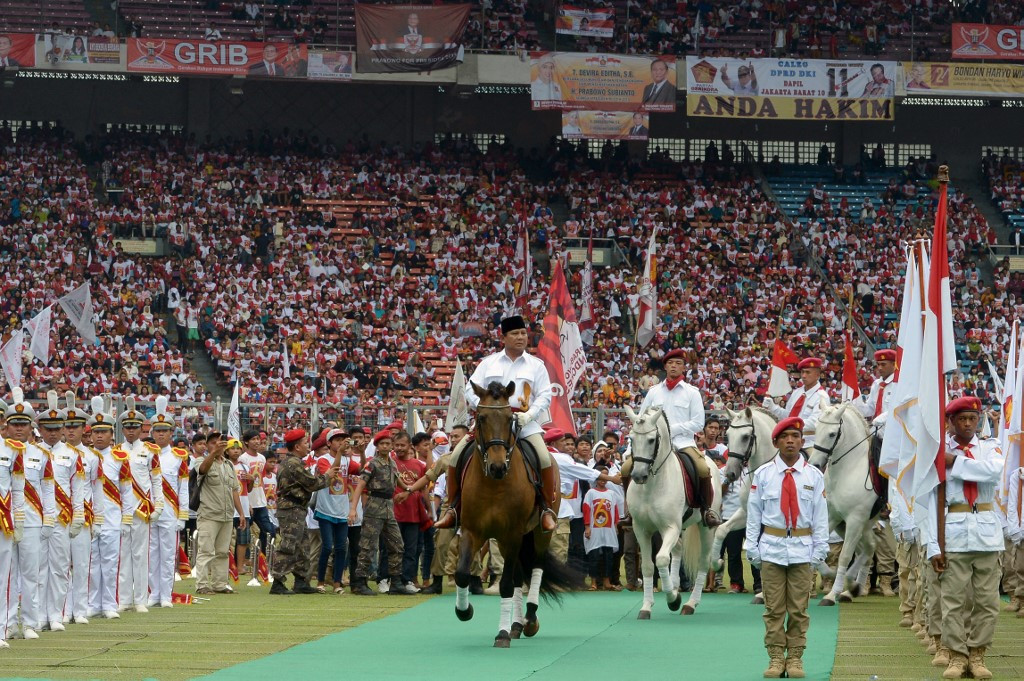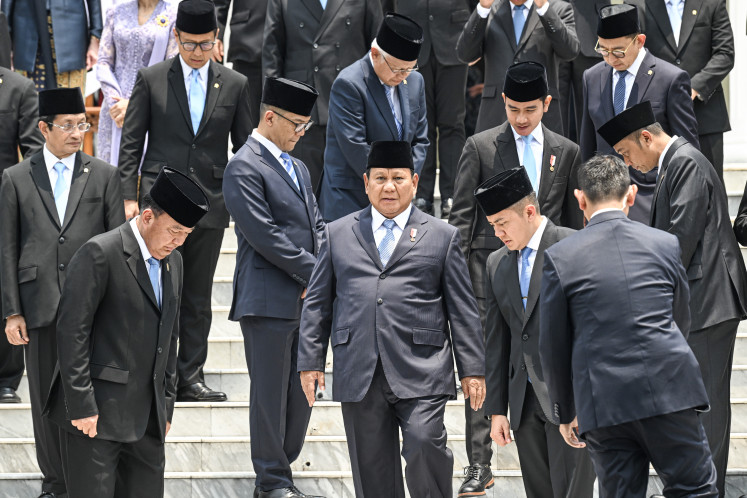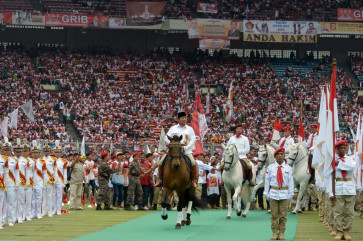Popular Reads
Top Results
Can't find what you're looking for?
View all search resultsPopular Reads
Top Results
Can't find what you're looking for?
View all search resultsJavanese kings are dead, long live those who run for president in their name
Money can also send your kids to the best schools in the world and this education—and personal connections and social network built in the study halls of Harvard or Eton--sure can train them to be the most skillful and astute politicians to run a country.
Change text size
Gift Premium Articles
to Anyone
I
n politics, it helps if your last name is Kennedy, Trudeau or Razak. These last names matter because at the end of the day running for office needs a lot of money and families with these names have access to a stash of cash and family connections that can help them along the way.
Money can also send your kids to the best schools in the world and this education—and personal connections and social network built in the study halls of Harvard or Eton--sure can train them to be the most skillful and astute politicians to run a country.
But in a place where power is not derived from something tangible like material wealth or skill and education, where power is immaterial and must be concentrated instead of being exercised, having an illustrious last name is only half of the equation.
In a political system where 80 percent of voters—and by this we refer to a majority of the Javanese population--believe that power can only come from a divine source, which takes the form of wahyu (divine radiance), your chance of success depends on whether you can claim ownership of that otherworldly stuff.
But since divine intervention does not come around very often, the easiest way for an aspiring monarch—or in our environment today a leading politician—is to claim wahyu though what scholar Benedict Anderson has described as the “falsification” of history, where politicians frequently associate himself through court chronicles with the residues of previous centers of power and greatness.
Anderson put the word falsification in scare quotes simply because the practice does not always come with a negative connotation and also because claiming ancestry is not an exact science, which can be proven right or wrong.
In his seminal book Language and Power: Exploring Political Cultures in Indonesia, Anderson wrote that although this claiming of a bloodline is not unique to Javanese culture, what makes it interesting in the Indonesian context is that the claimant does not need to establish a legal or inherited legitimacy with previous dynasties.


















